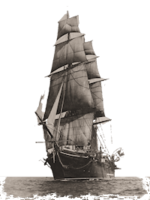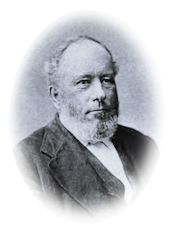April 23, 1863, Peoria Morning Mail (Illinois)
Correspondence of the World.
Federal Flotilla, Mouth Yazoo
River, Miss., April 9.
The interest attached to the operations before Vicksburg will hardly be borne out by the facts. A greater contrast could hardly be presented than things as they are in General Grant’s army and the combined fleets, and the light in which they are viewed by the people at large. Expectation is on the tiptoe at Memphis and all points north of that city to learn the latest news from below, and the slightest fact in relation to actual operations, which are very few in reality, is seized with the avidity of gluttony and worried into the most incredible shapes, which, in their turn, change to the next eye, and are represented as “further particulars” or “corrections” of the meager account from which they sprang. This is unavoidable, however deplorable it may be, for considering the difficulties of transmitting intelligence and the many biased mediums through which it must necessarily pass, it is no wonder that the public is frequently cheated out of its just dues by those whose only desire is to cheat it out of its purse. To make this more clear it is necessary to state that the mail is very unreliable, that there is no telegraph nearer than Cairo, Ill., and that there is a strict military surveillance over matter for the public journals. With almost every boat leaving the fleets for the North there are interested and irresponsible parties who carry such accounts above as will best shape public opinion and feeling to our interests, and such people have little care how much damage may be sustained by others so they can profit by the deceit. As there is much in forestalling public opinion, these traffickers in principle know it, and, availing themselves of the opportunities afforded them to anticipate news through its legitimate channels, pervert truth and present it only in such a light as shall show them the way to gain.
The capture of Vicksburg is uncertain. The position, naturally strong, has been improved n every possible manner and there is apparently no abatement in the efforts to guard all its distant approaches by such means as the best military skill and foresight could suggest. While this is palpable to the most unsophisticated eye, expeditions are fitted out week after week in the vain hope that some of them may succeed in finding a vulnerable place to assail, and by carrying it, upon some hitherto unexplored passage into the rear of the city. This reminds one of the fellow who stood on his head to take off his boots; yet it is well to give the troops something to do, and these expeditions have some good result; they prove the impossibility of clearing the Mississippi river by circumvention, and they teach the geography of the country.
The batteries at Vicksburg are not casemated; hence, it is probable that they are a good deal of a bugbear to the iron-clad fleet, not yet fully tested in storming them. Last summer demonstrated that they could be silenced in two hours’ bombardment, but the want then was troops to hold the city after the forts were carried. It is not unfair to suppose, then, that now, as the fleet is even more powerful than it ever has been, and that troops are abundant, either a want of co-operation or some circumlocution policy prevents the taking of the place.
The steamer Magnolia, hitherto occupied by Gen. Grant as his headquarters, has been set free from military possession, and the general, with his staff, has gone ashore at Milliken’s Bend, La., a few miles above Young’s Point, opposite the mouth of Yazoo river. The latter place has become dreadfully disagreeable and unhealthful. Thousands of troops had been encamped upon a few acres of swampy land for several weeks and the hygiene of the place was sadly neglected, for it was believed that the stay would be brief, and carelessness for the future engendered disregard for present precaution. In a space of a few hundred square yards it is not uncommon to see a row of tents, with no attempt at cleanliness, and half a dozen graves partially trodden under foot. This was an unavoidable condition several weeks ago, but now, with the daily improvement of the weather and the manifestations of a long stay, it should be the duty of the commander to enforce the most rigid discipline in the sanitary departments of the army.
The new headquarters of General Grant is a vast improvement upon Young’s Point, for the land is higher, and there are no swamps for many miles around it. The “place” belonged to a wealthy planter, whose name it bears, and every care has evidently been taken in past years to improve it. High levees run the entire length of the plantation to guard against the encroachments of the Mississippi, and the now abandoned fields betoken the bounteous crops of cotton gathered in the years gone by. Milliken’s Bend is generally regarded as one of the most beautiful places on the Mississippi river, but the eye accustomed to eastern scenery would find very little in it suggestive of beauty. The land is flat and the soil rich, but no attempt has been made toward landscape gardening. The planter’s home is generally surrounded with rude flower-beds and shrubbery, but outside that, his plantation has ever been regarded as a workshop or manufactury–simply to make money. It will require the work of years to restore these plantations that have been occupied as camp grounds to their former state of perfection.
The same dullness in the army characterizes the fleet, which still lies at anchor at the mouth of the Yazoo river. Haine’s Bluff rejoices in the peaceful possession of itself, and its guns still grin defiance at the unassailing foe. Repairs are being made to the boats injured in the last expedition, which was not a success, in a military or naval point of view, and that settled air which indicates repose breathes softly around our fleet. The more anxious for fight men daily express the wish that the enemy would open the raft above and send down another Arkansas to stir the lazy spirit of the fleet and awaken action.
Some are of the decided opinion that Vicksburg is evacuated, with the exception of the few soldiers who are left to man the batteries, but the best information received contradicts this flatly, and the highest intelligence would seem to show that there remains but one way to make it ours, and this is by hard fighting.









